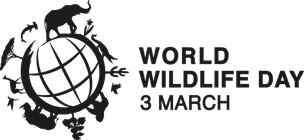RIO+20 SUMMIT NOT TO BE REMEMBERED FOR “PARADIGM SHIFT”
DESPITE reservations of a few nations including the US, on certain points, the ten-day historic United Nations Conference on Sustainable Development or the Rio+20 Earth Summit from June 13 till June 22, 2012 held at Riocentro Convention Centre, Barra da Tijuca, Rio de Janeiro, Brazil adopted a much-touted document called “The Future We Want.” However, the 49-page and 283-point document failed to assure billions of people on the Earth of sustainable and fearless future. A large number of activists, free thinkers, members of the civil society and intelligentsia, and journalists thus rightly termed the document as verbose, rhetoric, hollow and unsustainable.
Contrary to this, the hopes ran very high just before the start of the Summit that the Rio+20 Summit would provide a forum to the world leaders, CEOs and civil society leaders to take historic decisions, announce commitments and galvanise action on how we can reduce poverty and inequality and ensure environmental protection on an increasingly crowded planet.
The city of Rio, which is famous for 1992 Earth Summit and its outcome, Agenda-21, was expected to come up with a document that assured the whole of humanity and ensured a sustainable future for all living beings on the Earth. The “talks and talks” seemed to have lost their sheen in the mountains, big rocks, large lagoons, long tunnels and dense forests of the Atlantic Ocean facing city, Rio de Janeiro!
Dozens of the world leaders had descended on the city amidst high hopes and aspirations of the people; but they could not offer much except nice words, not even soothing balm! Each and every leader talked about the sustainable development and its aims, green economy, climate change due to global warming, common future, social environment, security, women and environment, ecology and conservation, sustainable oceans and fisheries, transfer of green technology, etc., etc; but the outcome did not match the justified aspiration.
They only agreed to a document that was termed as hollow and verbose! Some of them even talked on the negative impacts of the nuclear energy, but most of them refrained from this issue and also did not like to talk about weaponisation and militarisation, cosumerism, corporatisation, mining and dams and their impact on the indigenous and mountain peoples.
A few countries had oblique references to the issues dear to the hearts of millions and millions of people; however, were not vocal as they depended on the grants and assistance of the rich nations. An invisibly threatening shadow of the rich nations on these countries could be felt during the ten-day Summit.
The question here is: If the rich and so-called developed nations are not ready to take on the challenges head-on, how can they bring in the much touted “paradigm shift”? The UN officials praised the role of the NGO sector very much; but members of this sector were hardly consulted. They were not given enough time to assess and really react appropriately to the effusive points in the document. As a result, the sector was very much critical of the document and went to the extent of dissociating itself with it at all.
The high-level round-table meetings allowed the official representatives to air their voices; but were their concerns included in the document or the outcome? No, because the document was prepared and finalised even before or during the high-level meeting attended by the heads of the states.
Nevertheless, it is important to mention here that the high officials of the governments and several other representatives of the major groups working in different fields in the round-table meetings did talk about all serious issues that the humanity on the Earth was confronted with and even some of them went to the extent of drawing attention towards obesity and unsustainable food and dress habits. Some of them directly attacked the consumerism and mindless use of fossil fuel energy that were eating into the resources of the earth indiscriminately.
A few speakers wondered how those countries called themselved as “developed” who were consuming or misusing more than 80 percent of the total resources. According to them, it was, therefore, important to have really sustainable ways rather than blindly following the rich nations. The Venezuelian representative said that it was important to save the Earth from such countries and “the green colonialism and protectionism” that was being roped in, in the name of green economy. “There is no point in following the models of the sixties, seventies and eighties as they have benefited the MNCs only, said the South Sudanese representative. Therefore, it was important to have free and sovereign models of sustainable development.
There were talks and talks on each and every issue under the Sun; and even more; however, the most pertinent question is whether the Rio+20 Summit be remebered for its so-called paradigm shift!
Rio de Janeiro is the city, where 20 years ago, in 1992, the UN Earth Summit was organised, which was unprecedented in terms of both its size and the scope of its concerns. Hundreds of thousands of people from all walks of life were drawn into the Rio process. They persuaded their leaders to go to Rio and join other nations in making the difficult decisions needed to ensure a healthy planet for generations to come. The Earth Summit’s message – that nothing less than a transformation of our attitudes and behaviour would bring about the necessary changes – was transmitted by almost 10,000 journalists present there and heard by millions around the world. The message reflected the complexity of the problems facing us: that poverty as well as excessive consumption by affluent populations place damaging stress on the environment. Governments recognised the need to redirect international and national plans and policies to ensure that all economic decisions fully took into account any environmental impact. And the message has produced results, making eco-efficiency a guiding principle for business and governments alike.
The two-week Earth Summit in 1992 was the climax of a process, begun in December 1989, of planning, education and negotiations among all Member States of the United Nations, leading to the adoption of Agenda 21, a wide-ranging blueprint for action to achieve sustainable development worldwide. Although Agenda 21 had been weakened by compromise and negotiation, it was still the most comprehensive and, if implemented, effective programme of action ever sanctioned by the international community.
The Earth Summit influenced all subsequent UN conferences, which have examined the relationship between human rights, population, social development, women and human settlements — and the need for environmentally sustainable development. The World Conference on Human Rights, held in Vienna in 1993, for example, underscored the right of people to a healthy environment and the right to development, controversial demands that had met with resistance from some Member States until Rio. The Earth Summit also succeeded in presenting new perspectives on economic progress. It was lauded as the beginning of a new era and its success would be measured by the implementation – locally, nationally and internationally – of its agreements. Then, the UN was given a key role in the implementation of Agenda 21. Since then, the Organisation has taken steps to integrate concepts of sustainable development into all relevant policies and programmes. Income-generating projects increasingly take into account environmental consequences.
Now, twenty years after the first global environment conference, the UN sought to help the governments rethink economic development and find ways to halt the destruction of irreplaceable natural resources and pollution of the planet. The Rio+20 Summit was the result of such thinking. And, there were 26 priority areas, which the Member States had identified in the course of negotiations, and it was expected that all those priority areas would be addressed at the Rio+20 Conference.
In Rio+20 Conference, the world leaders were expected to set the sustainability agenda for the next 20 years, towards identifying solutions and goals to tackle urgent global challenges, such as lack of access to energy and clean water, depleted oceans, food insecurity, widening inequalities and rapidly expanding cities in the official negotiations, statements and round tables, and at over a thousand special events. They were also expected to decide ways to boost corporate sustainability, create green jobs, advance the role of science and innovation, close technological gaps, generate needed financing and improve mechanisms for international cooperation. But, they failed to achieve these goals or objectives. This happened despite the fact that the UN Secretary-General Ban Ki-moon had hoped that the Rio+20 Conference would inspire the world leaders to build a more equitable world – a world of greater prosperity and inclusive, dynamic green growth for a healthy planet. He had also looked forward to new commitments and initiatives on critical challenges – from job creation and social protection, to energy, transportation and food security.
However, in Rio+20 Summit – described by the UN Secretary-General as “once-in-a-generation opportunity” to make real progress towards the sustainable economy of the future – the world leaders, along with thousands of participants from governments, the private sector, NGOs and other civil society groups, could not formulate a comprehensive approach to achieve sustainable economic growth, fight poverty, advance social equity, and ensure environmental and ecological protection in order to get to the future we want!
August 15, 2012.



